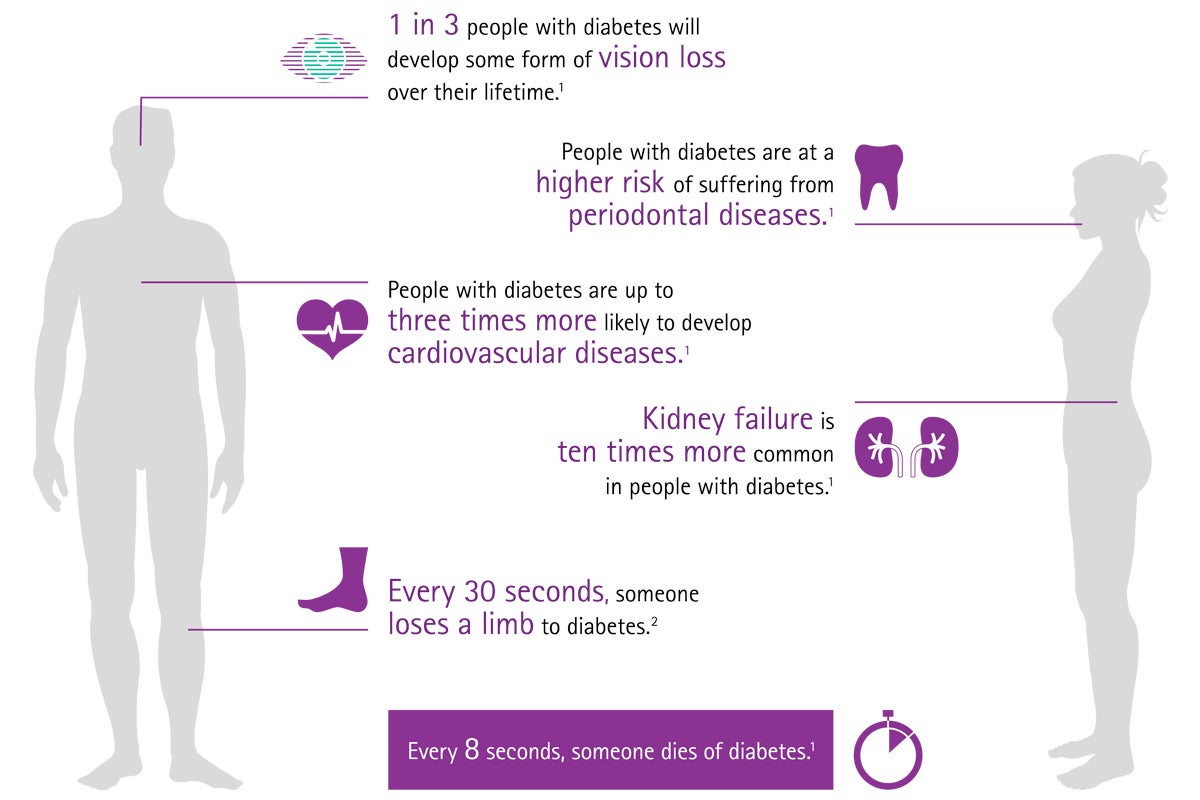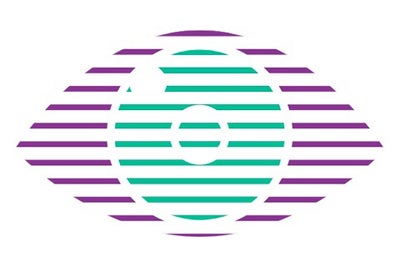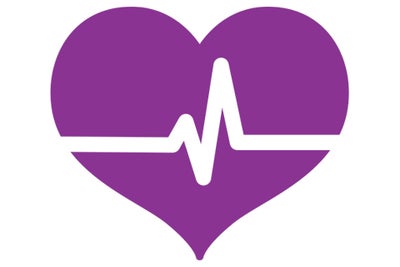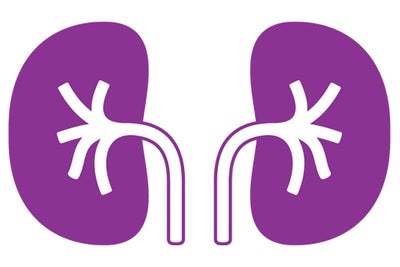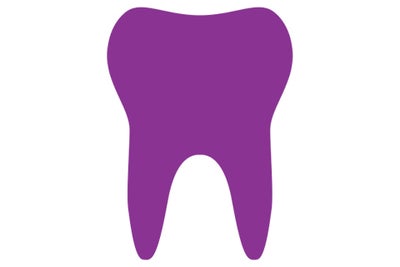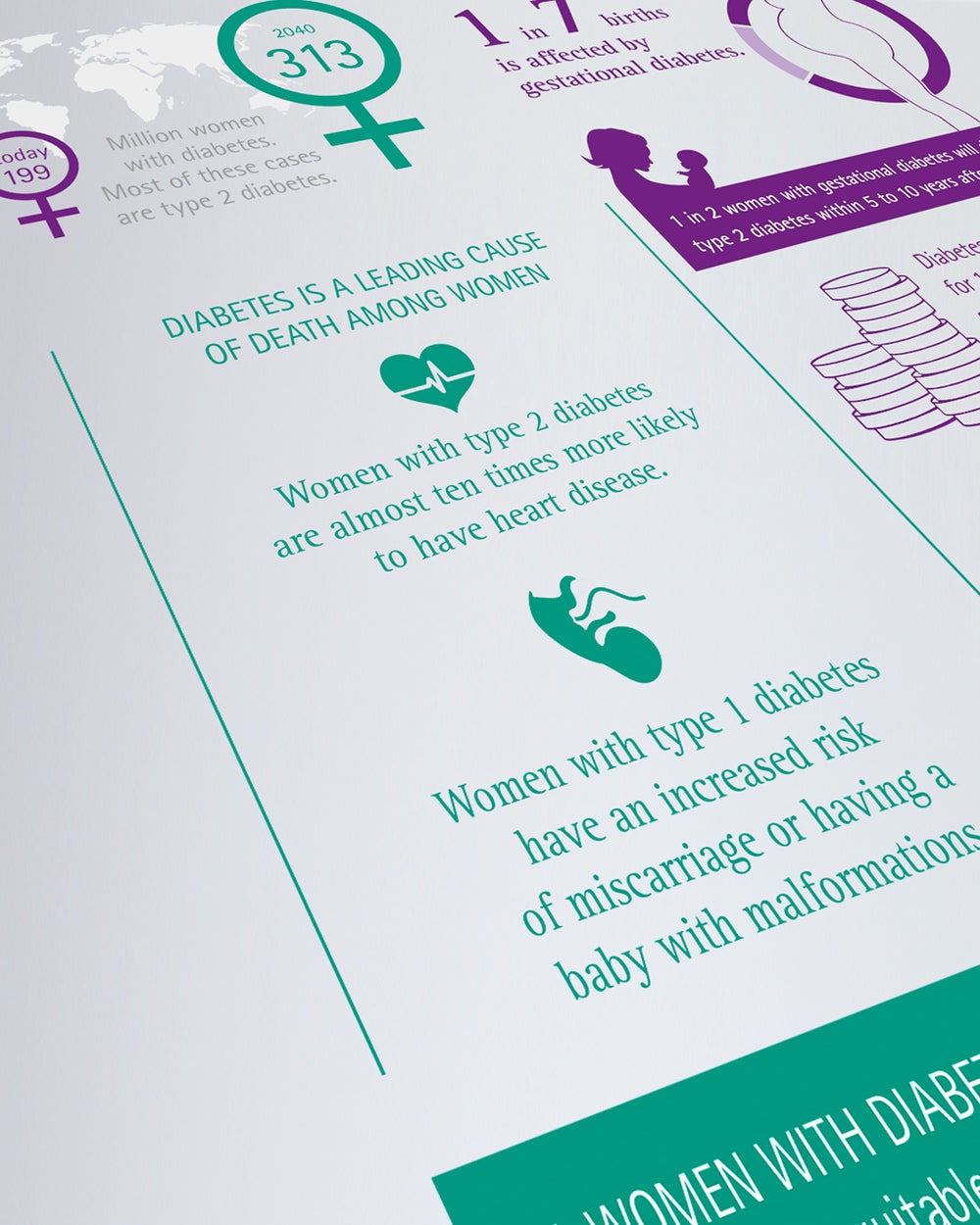Diabetes complications
People around the world are aware of diabetes. But how serious is the situation for an individual affected with the disease, what are the consequences and what does it all mean for those close to someone with diabetes?
This year’s motto for World Diabetes Day reads “Diabetes: Protect your family”. The more you know about this disease, the better you are able to cope. In fact, diabetes is one of the main causes of blindness, amputation, heart disease, kidney failure, and premature death.(1) Knowing the risks and how to reduce them is the first step to protecting yourself and your family.
Facing all the challenges
People with diabetes have a higher risk of developing numerous health problems, most of which do not appear to be linked to the disease initially.
Download
| Early recognition of diabetes is very important. If you want to know more about your own potential risk of developing type 2 diabetes, feel free to try out the "Test2Prevent" provided by the International Diabetes Federation. |
Complications in detail(1)
Nerve disease
High blood glucose and blood pressure during diabetes can damage the body’s nerves. Digestion problems, erectile dysfunction, and many other problems may occur. The extremities, in particular the feet, are most often affected. Pain, tingling and loss of feeling allow for injuries to go unnoticed. Serious infections and amputations are possible.
Vision loss
Most people with diabetes suffer from a form of eye disease if their blood glucose remains high over a longer period of time. This harms the tiny blood vessels in the back of the eyes and may already start, when diabetes has not yet been diagnosed. The result is poor vision or even blindness. Maintaining glucose levels as close to normal as possible, as well as regular eye checks help to prevent the worst.
Cardiovascular diseases
Blood pressure, cholesterol, blood glucose – as soon as these rise above a normal level, they affect your heart and blood vessels negatively. The risk of cardiovascular complications rises and in the worst case, these are fatal. Coronary artery disease is the most common cause of death in people with diabetes.
Kidney failure
The reason for kidney disease and failure are damaged blood vessels which no longer filter blood properly. High blood pressure as well as high blood glucose cause a high blood flow; blood vessels stretch so the blood flows more easily. Eventually, this scars and weakens the vessels.
Periodontal diseases
The increased risk of inflammation of the gums leads to dental complications such as periodontitis and tooth loss. Regular dental check-ups are important to ensure early diagnosis. As soon as symptoms of gum disease such as bleeding while brushing or swollen gums appear, annual visits are recommended.
Reduce the risk
You have the power to significantly lower the risk of long-term complications.
Early detection is the key.
It is vital to detect the disease as soon as possible, because undiagnosed diabetes can injure your body in different kinds of ways. As soon as you have detected the disease, you can take all the necessary steps to support and protect your body the best you can. And knowing how to handle your disease will have a huge impact on the course of your treatment. On that journey, you can also find support on our website in form of tips and tricks for your insulin injection.
Sources
(1) IDF Diabetes Atlas 8th Edition 2017, www.diabetesatlas.org
(2) care.diabetesjournals.org/content/38/10/1852


